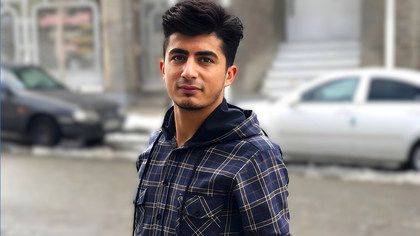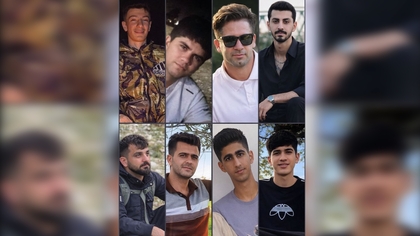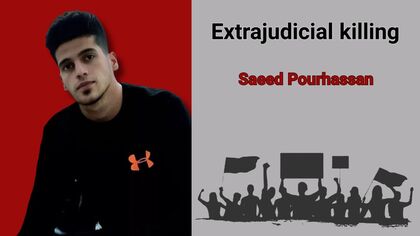Scores of Social Media Users Arrested on National Security Charges
00:00 - 11 June 2015

Kurdpa: Iranian authorities arrested five social media users on security charges, a judiciary spokesman was quoted as saying on Monday, in the latest incident in the establishment’s long fight to suppress online dissenters.
“Several members of a group which systematically took steps against security and called for illegal activities on social media were identified and arrested by the security forces,” Gholamhossein Mohseni-Ejei was quoted as saying by the Mehr agency.
He said five people had been arrested so far and more may follow as part of the same operation.
The authorities have ramped up online censorship since activists used social networks to coordinate massive anti-government protests in 2009 that Tehran said were stirred up by foreign powers, following a disputed presidential election.
Kurdpa had reported that Iran’s cyber police had forcefully installed security cameras in internet cafes in the Kurdish cities of Iran. In Bokan, such cameras were installed without the cafe owners’ consent.
Similar internet security measures were reported in the cities of Wurme, Paweh and Kermashan. According to the statements of some internet cafe owners, the authorities had requested the owners to record the identity of all the internet users.
Through such CCT cameras, the authorities keep track of all the internet users that visit the cafes and monitor their surfing activities, the cafe owners had confirmed to Kurdpa.
Human rights observers had reported in the Kurdish areas of Iran that many internet users with social media accounts had been summoned to the intelligence for simply liking and sharing contents of political dissidents.
Iran blocks access to social media sites Facebook, Twitter and YouTube but millions of Iranians easily get around that by using virtual private networks (VPNs).
Supreme Leader Ali Khamenei, President Hassan Rouhani and Foreign Minister Mohammad Javad Zarif all have active Twitter accounts with hundreds of thousands of followers.
Communications Minister Mahmoud Vaezi in December introduced a policy of “smart filtering” to improve the efficacy of Iran’s censorship, and state television in March said the authorities had monitored 8 million Facebook accounts.
As well as political dissent, security forces clamp down on any activity perceived to be contrary to the Islamic Republic’s strict moral code. Last year, six people were briefly arrested after posting a video of themselves singing and dancing along to a Western pop song.
Writing by Kurdpa Staff Writers and editing by Hazhir B. with information from the agencies.
“Several members of a group which systematically took steps against security and called for illegal activities on social media were identified and arrested by the security forces,” Gholamhossein Mohseni-Ejei was quoted as saying by the Mehr agency.
He said five people had been arrested so far and more may follow as part of the same operation.
The authorities have ramped up online censorship since activists used social networks to coordinate massive anti-government protests in 2009 that Tehran said were stirred up by foreign powers, following a disputed presidential election.
Kurdpa had reported that Iran’s cyber police had forcefully installed security cameras in internet cafes in the Kurdish cities of Iran. In Bokan, such cameras were installed without the cafe owners’ consent.
Similar internet security measures were reported in the cities of Wurme, Paweh and Kermashan. According to the statements of some internet cafe owners, the authorities had requested the owners to record the identity of all the internet users.
Through such CCT cameras, the authorities keep track of all the internet users that visit the cafes and monitor their surfing activities, the cafe owners had confirmed to Kurdpa.
Human rights observers had reported in the Kurdish areas of Iran that many internet users with social media accounts had been summoned to the intelligence for simply liking and sharing contents of political dissidents.
Iran blocks access to social media sites Facebook, Twitter and YouTube but millions of Iranians easily get around that by using virtual private networks (VPNs).
Supreme Leader Ali Khamenei, President Hassan Rouhani and Foreign Minister Mohammad Javad Zarif all have active Twitter accounts with hundreds of thousands of followers.
Communications Minister Mahmoud Vaezi in December introduced a policy of “smart filtering” to improve the efficacy of Iran’s censorship, and state television in March said the authorities had monitored 8 million Facebook accounts.
As well as political dissent, security forces clamp down on any activity perceived to be contrary to the Islamic Republic’s strict moral code. Last year, six people were briefly arrested after posting a video of themselves singing and dancing along to a Western pop song.
Writing by Kurdpa Staff Writers and editing by Hazhir B. with information from the agencies.



